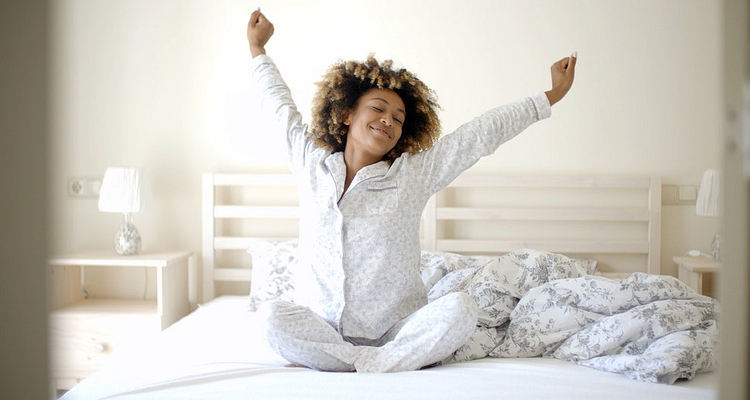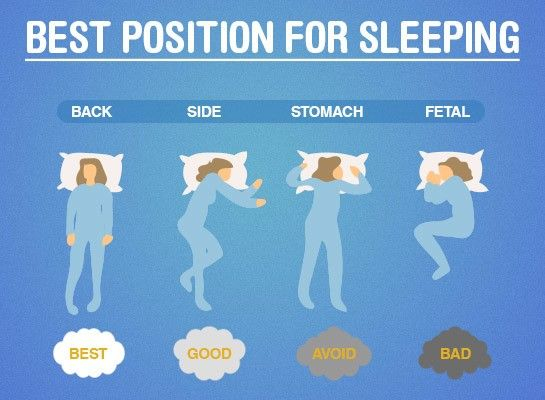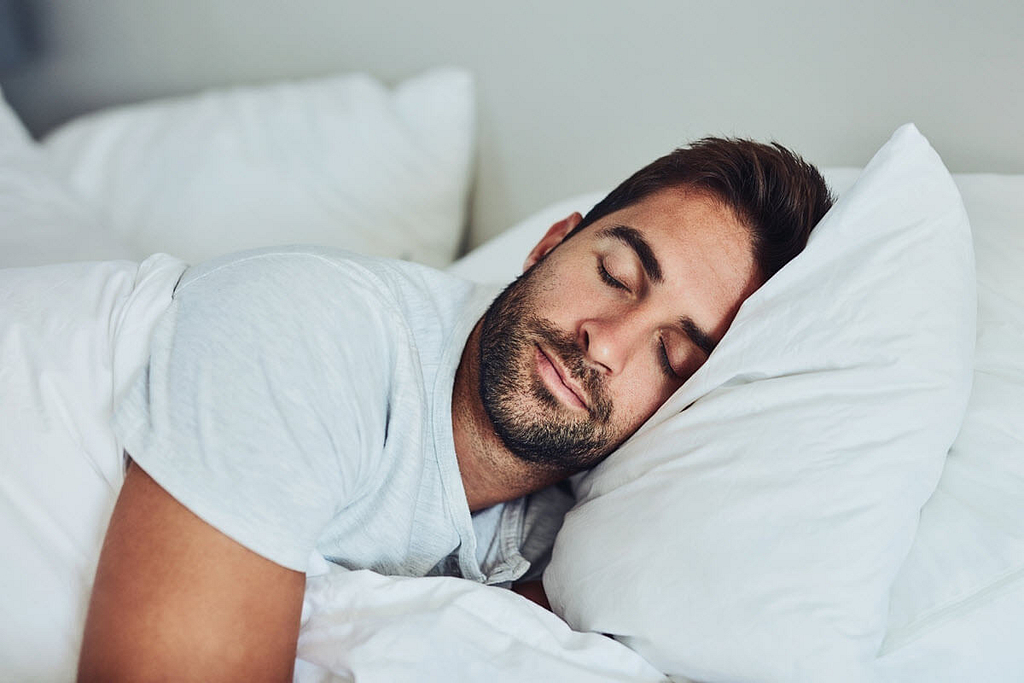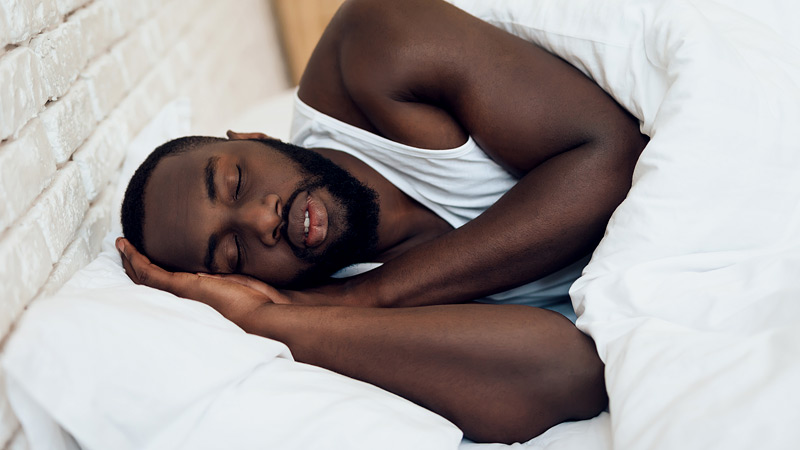[Reading Time: 3 Minutes]
Sleep is one of the most underrated contributors to high quality health.
Science has shown sleep affects our emotions, decision-making, ability to focus, productivity, energy levels, immune system, memory and general mood.
I have recently been experimenting with different sleep approaches and what I found really surprised me.
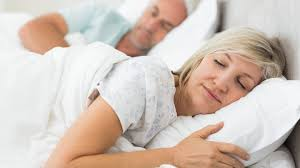
First of all, everyone has unique sleep habits, so you need to do what feels and works best for you.
There are a lot of myths around sleep, for example:
Myth #1: That we need 8 hours of sleep a night.
Myth#2: High Achievers don’t need much sleep or are healthier and function better on less sleep.
So What Helps You Get Good Sleep?
America’s ‘Sleep Doctor’, Dr. Michael Breus, shares how to optimize our sleep in this 7-step guide on how to optimize our sleep so you not only feel like a million bucks in the morning, you also get healthier.
Dr. Breus debunks many myths we have about sleep, and reveals a powerful 5-step process that will have you enjoying the most restful, rejuvenating sleep of your life… Starting tonight. → Listen Here

The 4 Stages of Sleep
Sleep works in a pattern or cycle where we go through 4 stages. They are 1. Falling asleep 2. Light Sleep 3. Deep Sleep and 4. REM Sleep (Dreaming). This makes up 1 sleep cycle.
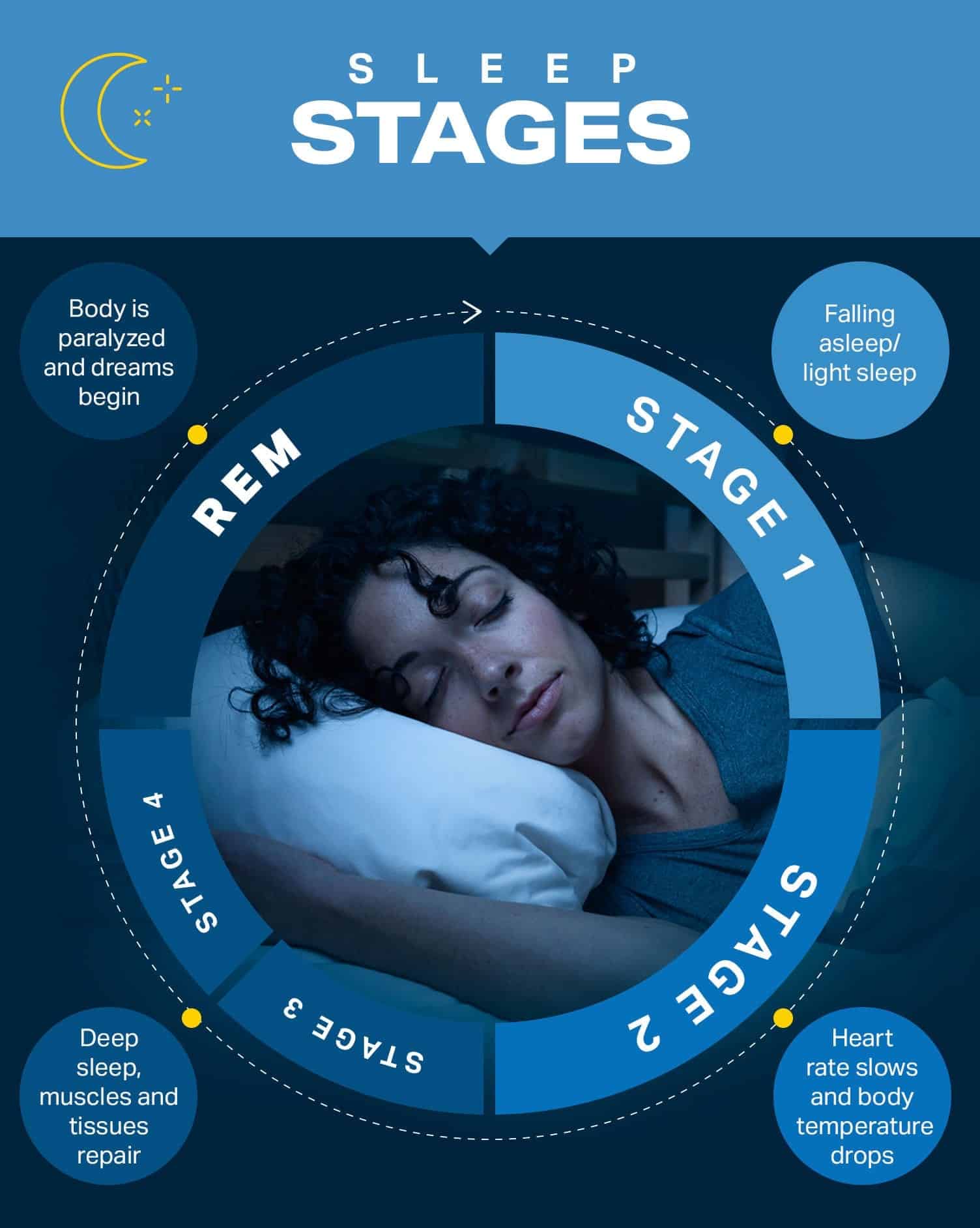
We need about 5 sleep cycles a night, and we’ve been told that a sleep cycle is 90 minutes long. This is where we derive our popular sleep metric: 5 (sleep cycles) times 90 (minutes) equals 450 minutes, which rounds up to approximately 8 hours.
But here’s the thing — not everyone’s sleep cycles are 90 minutes long. Actually, the length of a human sleep cycle can range anywhere between 75-90 minutes.
If you wake up at the end of a sleep cycle you feel great, rested and rejuvenated. If you wake up during the middle of Stage 3 Deep Sleep for example, you feel can feel terrible, regardless of how many hours you’ve slept. So it really helps to time your wake up to wake up at the end of a sleep cycle (after you’ve finished Stage 4 (REM Dreaming).
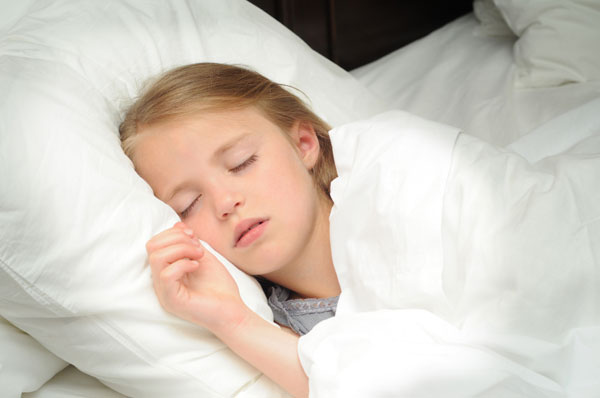
So, if you are like many people, including Dr. Breus, and have a shorter sleep cycle, you’ll require less sleep.
Now, how do you figure out how much sleep you need? You can use this method invented by the Sleep Doctor, himself.
Dr. Breus’ Bedtime Calculator

1. Set a wake up time
Most of us have a socially determined wake up time — whether we need to wake up for work or to take the kids to school.
This socially determined wake up time is a good thing. In fact, Dr. Breus recommends keeping this time consistent through all 7 days of the week to help lock in your sleep circadian rhythm.
2. Set a bedtime
Now, let’s say that you need to be awake at 7am. Count 7 ½ hours backward from 7am, and make 11:30pm your new bedtime.
3. Note when you wake up
Set your alarm for 7am, and note what time you naturally wake up.
If you find that you naturally wake up at 6:30am, then perhaps you only require 7 hours of sleep.
If you find that you are still groggy or tired when your alarm goes off, then perhaps try setting an earlier bedtime. Don’t feel bad about this, either — the world’s top performers get an average of 8 hours and 36 minutes of sleep per night.
This is how you discover how much sleep you need a night. Wear it proud! And lock that in as your new healthy sleep pattern.
4. Adjust as necessary
Sometimes, our lives are far busier than normal. Other times, we suffer from illness, jet lag or extra stress. During these times, allow yourself any additional sleep you may need to recover.
For Best Sleeping Positions: Click Here.
5. Check Your Sleep Patterns
EVERYTHING YOU DO, YOU DO BETTER WITH A GOOD NIGHT’S SLEEP.
— DR. MICHAEL BREUS
Just by missing out on a single sleep cycle, your brain performance can go down as much as 33%… Your risk taking goes up, while your rational thought about the risks you are taking go down.
The sleeplessness of places like casinos makes more sense now?
To further educate yourself, you can get a sleep study done. During a sleep study, you can learn about any sleep disorders you may have (snoring, sleep apnea, periodic limb movements, etc.).

6. Tone down the Caffeine and Sugar before Bed
Caffeine has a half-life of 7 hours. That means that, after about 7 hours, half of the caffeine you’ve ingested is still in your system.
For this, Dr. Breus suggests that we stop drinking caffeine at about 2pm. This will give you enough time to get at least half of the caffeine out of your system by bedtime.
Coffee fanatics, you can switch to decaf after 2pm.
Alcohol is, undoubtedly, the most popular sleep aid in the world.
Alas, using alcohol as a sleep aid is a bad idea. While alcohol can cause you to pass out like a narcoleptic, it isn’t conducive to deep, restorative healthy sleep.
There is a big difference between “going to sleep” and “passing out.”
It takes the human body an hour to digest an alcoholic beverage. So, an easy way to fix this problem is to just give yourself 1 hour for each drink. For example, if you finish your third glass of wine by 8pm, go to bed at 11pm.
We it comes it our health, we all know the health benefits. However, did you know that proper exercise is the best way to improve your quality of sleep?
And we don’t mean bustin’ out a hard gym session for an hour, either — 20 to 25 minutes of moderate exercise will do the trick. Moderate exercise is any movement that gets your heart rate up slightly, this includes exercise as simple as walking, light yoga or Pilates and even dancing with your dog.
Here’s the catch — exercise, of any kind, too close to bedtime may be a bit too exciting for your body. Dr. Breus recommends winding down for 4 hours before bed.
But wait, what about the bedroom sport, sex? Don’t worry, Dr. Breus has some great ideas regarding our unique chronotypes and the best time to have sex.
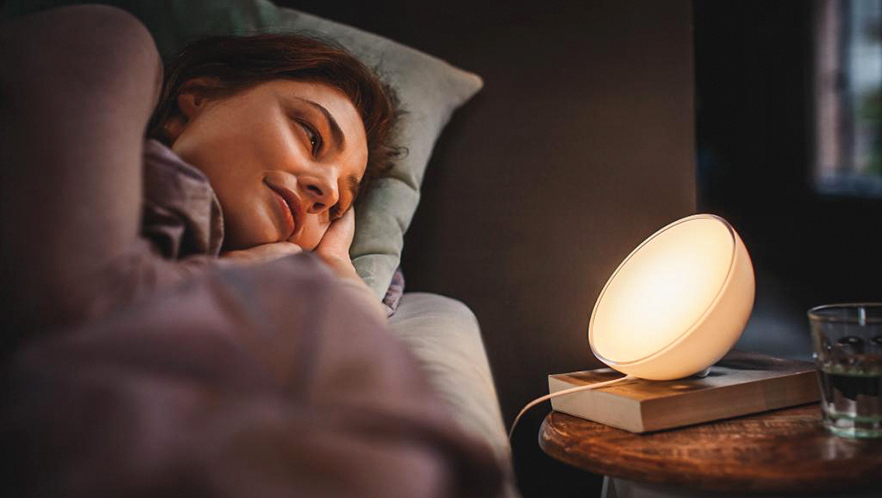
9. Optimize Your Light Exposure
Our exposure to different types of light and our sleep rhythms go hand-in-hand.
To keep your sleep circadian rhythm on track, it’s important to get 15 minutes of direct sunlight directly after you wake up.
Also, if you get tired during the day, you can try to take a “sunshine break” instead of a coffee break.
However, if you don’t have an opportunity to soak in the sun’s natural rays, you can purchase light bulbs that emit a blue spectrum of light. This blue light spectrum (400−495 nm) is a high-energy spectrum that acts like coffee for your brain — it turns the “melatonin faucet” off.
For this same reason, it’s important to avoid blue light at night.
Blue light emits from screens of all kinds, including our phones. Many of us try to counteract this by using the red light emitting “night mode” setting on our phones. But unfortunately, as Dr. Breus states on the Mindvalley Podcast, this setting is a complete bogus.
Within your home, you can replace light bulbs with GoodNight bulbs, or a number of other spectrum-specific lights by lighting.science.
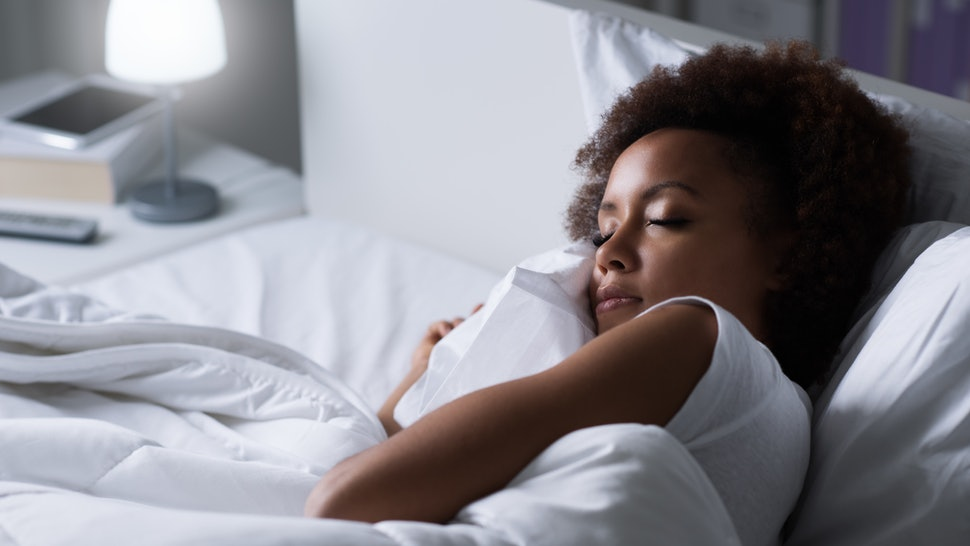
10. NB> Resolve Subconscious Issues
Sleep problems or insomnia are often linked to unresolved anxiety, stress, fear or guilt that is literally preventing us from relaxing into sleep.
Often, until this anxiety, fear or guilt is faced and resolved, sleep will continue to be a challenge. The good news is, once we address and resolve the cause of our stress or anxiety, our healthy sleep patterns return.
There are many ways to deal with these unresolved anxiety, stress, fear or guilt sleep stoppers, personally I have had brilliant results working with enlightened professionals who deal with the root cause of the problem at the deepest level (the subconscious mind). You want to find someone who has proven results of helping people resolve their issues once and for all at the subconscious level, not someone who is going to charge you a fortune to only focus and talk about your problems at length (making them bigger in your mind), leaving you with no lasting results and a massive bill.
There are a few enlightened professionals around who know how to help you face and resolve anxiety, stress, fear or guilt and sometimes this was successfully done in a 1 hour session. Once the anxiety, fear or stress was resolved, I experienced some of the deepest most relaxing sleep I’ve ever had, and the issues that caused the poor sleep, haven’t come back since.

Bonus: What’s The Deal With Napping?
This is another taboo-breaker: contrary to popular belief, napping is extraordinarily productive. A 26-minute nap increases performance by 30%.
During this podcast, Dr. Breus recommended two different modes of using naps as a superpower.
1. Traditional Power Naps
An ideal power nap is approximately 26 minutes.
The trick to optimizing your power naps is to know that naps have 3 different benefits, depending on the time of day you take them.
- Morning naps boost memory and creativity.
- Afternoon naps (siestas) boost alertness.
- Evening naps can help to revitalize your focus.
Hope you enjoyed this sleep guide and if you want to hear more about the science of sleep, tune in to the Sleep Podcast episode with Dr. Breus.
You might be interested in:
While the trigger that causes us to eat excessivel...
Strictly For Women Only! 🙂 This beautiful...
&...

